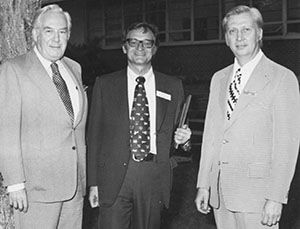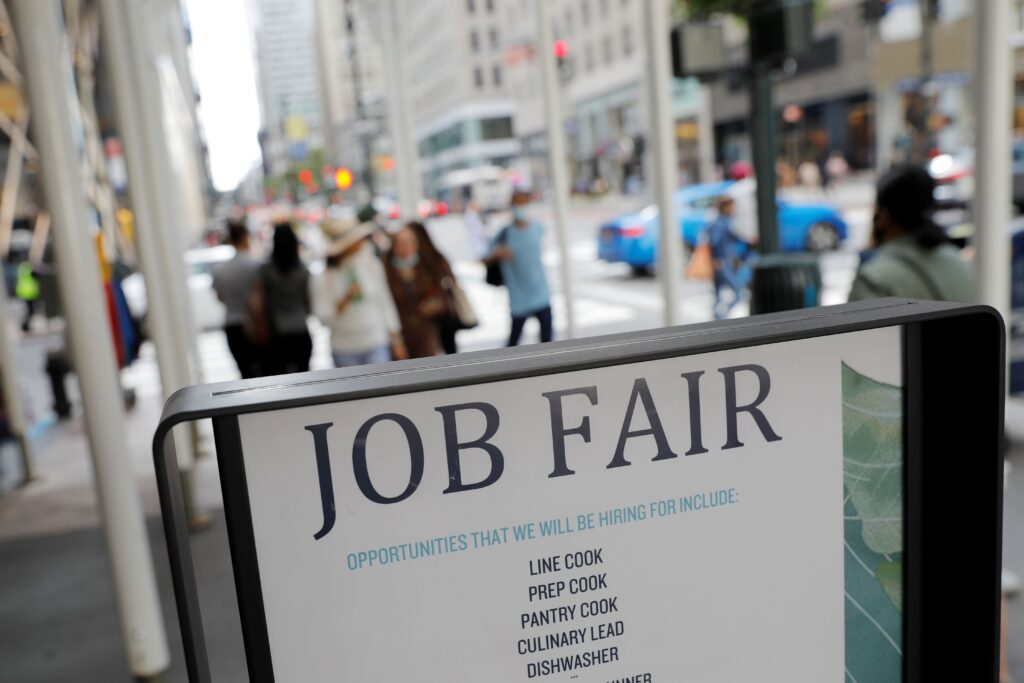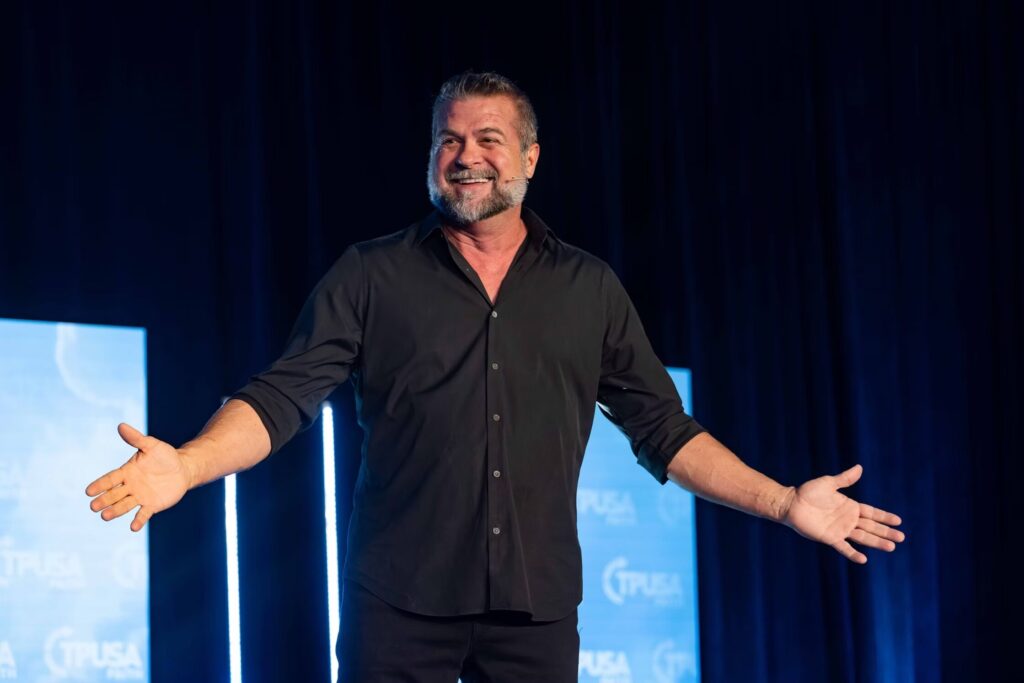Justice Jim Carrigan’s legacy is one of profound influence

For many attorneys, an appointment to a judgeship is the culmination of a career aspiration that may appear somewhat aside from politics. An appointment to the bench often rewards either evident legal acumen or the generous financial support of politicians. In the case of former Colorado Supreme Court Justice and Federal District Court Judge James “Jim” Carrigan, it was also his sense of humor that was lauded during a memorial service last week at the University of Colorado Law School in Boulder. A New Yorker cartoon hung in his chambers where a Judge peers down from his perch glaring at a defendant, saying, “Show a little respect, I had to kiss a lot of asses to get this job.”
Acting as Master of ceremonies, his son and University of Colorado Regent Michael Carrigan wore the bright green judicial robe his father wore in court each St. Patrick’s Day. A devout Catholic and dedicated Irishman, the elder Carrigan imposed a ‘Local Rule 1A’ in his courtroom, requiring opposing counsel to commence each day’s hearing with a joke that abided by rules of good taste but would begin proceedings on a note of levity. Each speaker at Carrigan’s memorial conformed to this rule. This was not an evening for tears and regret, but a celebration of a life well lived and a man who quite obviously exercised a profoundly positive influence over the lives of family, friends, colleagues and clerks.
The first three rows in the large, Wittemyer mock courtroom were roped off for judges and elected officials, while much of the remainder of the seating was occupied by the cream of Colorado’s legal community. Guests were greeted by Dean Phil Weiser, who reflected on the ongoing support Judge Carrigan provided to the law school including a single family record for graduates. Each year’s mock court victors are awarded the Carrigan Cup. Michael Carrigan reflected on his Dad’s groundbreaking decisions regarding racial profiling, women’s rights in divorce proceedings and intellectual property law. He then imposed Rule 1A on subsequent speakers, recounting a case that pitted the National Football League against a summarily dismissed referee. As the attorneys became increasingly bellicose, Carrigan came to court one morning wearing a whistle, which he soon used, tossing a yellow penalty flag from the bench in order to calm the disputants.
The first speaker was Carrigan’s daughter Sheila, the oldest of his children, also a judge and reportedly her father’s “favorite” (Rule 1A). She provided background on the hyperactive lawyer born in North Dakota, who polished off his legal education at NYU where he earned his Master’s in Law. It was there that he met his wife on a double date. Beverly, who was completing her Master’s in Social Work at Fordham, was dating his roommate and brought hers along for Jim to meet. Nonetheless, the couple spent the entire evening in intense conversation. A few days later he called to ask her out to dinner. When she objected, pointing out that she was dating his roommate. He replied, “No you’re not, I traded your dating rights for a bottle of Jack Daniels.” Sheila recounted how her father urged her to become a lawyer at a time when she didn’t think women could be attorneys. Standing with her son, she was delighted to report that when she suggested he become an attorney, he responded, “I didn’t know men could be lawyers.”
Moving to Colorado in 1956, Carrigan arrived to teach at the Denver University Law School. As his son Andrew pointed out, during the next 10 years he would hold nine jobs, father six children and move three times — he was a very busy guy. Settling in Boulder in 1963 after winning a civil rights case against the Denver police department, he became one of Colorado’s pre-eminent plaintiffs attorneys. He always advised his colleagues that it was important to be the most credible voice in the courtroom. If an injustice had occurred, it was necessary to be entirely believable in explaining the alleged grievance. He carried this sense of obligation into the courtroom with him as a judge and following retirement became an advocate against mandatory federal sentencing and the inequity between crack and powder cocaine penalties. Congressman Ed Perlmutter recalled meeting Jim Carrigan as he campaigned on campus to serve on the Board of Regents in 1974. Two years later he would resign the seat when Governor Dick Lamm appointed him to the Colorado Supreme Court. In 1979 President Jimmy Carter appointed him to the federal bench in Colorado.
It was there that he would rule on a Colorado case that has affected intellectual property law across the country ever since. A small greeting card company, Blue Mountain Arts of Boulder, discovered industry giant Hallmark was flagrantly copying the appearance, feel and character of their cards — stopping just short of plagiarizing the New Age sentiments and poetry they marketed. Hallmark was pressuring retailers to drop the real thing in favor of their ersatz copies. Boulder Congressman Jared Polis, son of the couple who found themselves being muscled by Hallmark, as were many other small card companies, explained that this lawsuit, which was supported by Justice Carrigan, saved the company. Although Hallmark appealed Carrigan’s ruling that an artistic product — its look and feel — is just as worthy of trademark protection as its content all the way to the Supreme Court, they failed there and American intellectual property rights were reshaped accordingly. This decision has saved many similarly situated companies that find themselves victims of predation from larger competitors.
But perhaps the most moving testimony came from Phil Morgan, who could not attend because of health problems. Now living in Boston, he appeared before Carrigan 25 years ago just as he was completing a long sentence for drug convictions. Prosecutors had decided to revive old charges on other violations that would keep him behind bars for many more years. Carrigan ruled the statute of limitations had expired and advised Morgan that this decision would provide him a chance to begin again and turn his life around. His letter reported a quarter of century of sobriety due largely to Carrigan’s faith that he could lead a different life and walk a different path. Awarded the Thomas More award by the Catholic Diocese of Colorado, Carrigan was a man of considerable principle. When several alumni expressed concern that civil rights law would reduce the number of white graduates from the Denver University Law School he responded that, “They can go to White Protestant Hell then.”
Another measure of his legacy is the Judge Jim R. Carrigan Loan Repayment Assistance Award, which will assist attorneys who choose to accept public service positions. The average law school graduate leaves the University of Colorado with $115,000 in educational loans. This debt load often steers them away from public service positions. Carrigan saw the need to help students tackle these obligations so that they could serve in the justice system. He may have been an Irishman “through and through” as his son Michael noted, but he was also a mensch! Most judges leave few footprints. Who can name more than two or three Chief Justices in American history? At least in Colorado, Jim Carrigan is likely to be remembered for decades to come.
Colorado Politics Must-Reads:















